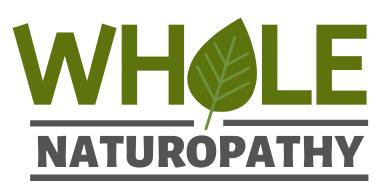
18 minute read
COLUMNIST ARTICLES
By Craig Anderson
I get regular calls from people who are in the process of starting a new business. Many are after a “ball-park” figure for insurance costs so they can flesh out a business plan and budget for outgoings. No matter how the conversation starts, the outcome is largely dependent on the quality of the information provided by the client, and this can be… to put it politely, “a little thin” at times.
To maximise your chances of getting a fair and accurate insurance quote:
Be Qualified. I can’t tell you how many times people have been unaware of the qualifications, licenses, registrations, or tickets which are essential not only to do the job they plan to do, but to convince the insurer they are a “good risk”. This is particularly the case if we are trying to get you Professional Indemnity cover. Best to do your research before telling the boss you’re leaving. We can’t insure the uninsurable.
Clearly Define your Activities. If you describe yourself as a “glazier” but forget to tell us you are abseiling from the 40th floor to replace windows in a multi-storey office block, the insurer will incorrectly rate you and will decline any claims. Remember to describe and disclose your activities properly. We can’t provide accurate quotes without a correct description. An inaccurate quote could lead a worthless policy if care is not taken at this stage.
Tell Us About Future Plans. The selection of insurers may depend on whether they can accommodate all of the required cover sections. A Business Pack PL (Public Liability) Policy may be more appropriate than a stand-alone PL policy if—in a couple of months—you might need to add contents, business interruption, and machinery breakdown cover sections for example. You may need a stand-alone PL Policy if your activity is “non-preferred” by Business Pack Policy Insurers. Your broker might have to place you with a specialty underwriter who understands that specific occupation. It’s better to know from the start what you plan on doing later, so a flexible insurance programme can be put in place.
Provide Correct ABN and Trading
Name. One fellow—insured with a direct insurer—had insured another company (not his own) with similar spelling for 6 years before realising that it was wrong from the very beginning. Details do matter. Double check this, otherwise you Be Patient. Often insurers and their underwriters are overwhelmed with the volume of inquiry, so be prepared to wait for a quality answer to come back. Speed doesn’t always equate to efficiency or deliver accuracy. Not everything can be done using online quoting tools, and this is particularly the case for complex risks. So perhaps start your research well before you quit your job to allow ample time to get it right.
You can thank me later.
Planning to start a business?
may take out an entirely worthless policy when you go ahead. Again, facts have to be right from the beginning.
Consider Advice. We understand no one has an unlimited budget, but don’t cut corners that may put you out of business before you’re off the ground. For example, If you handle and store people’s details like phone numbers, names and addresses, you need cyber protection for yourself. If employing people, you may need Management Liability Insurance, if you give advice, you may need Professional Indemnity and so on. Take the time to familiarise yourself with the risks, so you aren’t taken by surprise, and so you can write a realistic budget. Deciding in advance you need the “bare minimum” may be a costly financial error.
Read All of the Paperwork. When we ask you to read through and confirm the details are correct, you must check! Once a quote turns into a policy, this is a legal contract between you and the insurer. If you fail to read it, and later have an issue caused by a failure to correct your answers, it’s too late once a claim has occurred. Read the Schedule and read the PDS. Ask your broker questions, as the answers could make a big difference to the cover selected, and to how you manage risk within your business. For a health check of your business insurance, contact Small Business Insurance Brokers via email: sales@ smallbusinessinsurancebrokers.com.au
Any advice in this article has been prepared without taking into account your objectives, financial situation or needs. Because of that, before acting on the above advice, you should consider its appropriateness (having regard to your objectives, needs and financial situation).
Craig Anderson
GENERAL INSURANCE
Small Business Insurance Brokers
www. heightsafetyinsurancebrokers.com.au 0418 300 096
Superannuation Guarantee Contributions:

Who should be receiving it?
ACCOUNTANT
By Warren Strybosch
The Superannuation Guarantee contributions (SGC) have increased since 1st July 2022. However, there are many employers who don’t know what the correct amount is that they should be paying and who should be getting SGC.
SGC is an important part of every person’s financial position. It represents, for most people, the key asset they will have leading into retirement. As such, it is important to understand if you are entitled to it, if your employer should be paying it and how much you should be receiving.
Thankfully, the rules around SGC were made a little simpler, with most employees able to receive it.
Superannuation Guarantee: What is it?
SG contributions is a legislative requirement that all employers must pay to most employees. It is contribution of money, paid by the employer, on top of the employee’s salary or wages, into the employee’s superannuation account of choice.
The government introduced mandatory 3 per cent contributions (or 4 per cent for employers where their payroll was above $1 million) into an employee’s superannuation fund. In the early days, the employer would set up the superannuation fund on behalf of the employee, whereas now the employee can choose their own superannuation fund and provide that information to the employer. The employer ‘must’ place the SGC into the employee’s superannuation fund if the employee so directs. Most employers choose to remit the SGC on a quarterly basis when they do their BAS however some employers will pay it monthly or even fortnightly.
For most people who retire in the next 20 to 30 years, their superannuation balance will likely be their largest asset, apart from the family home, and provide an income stream for them in retirement. Will ever increasing uncertainty regarding the age pension, it will be an important asset to have.
Current SG rate
Currently the SG rate is 10.5% and increasing over time until it reaches 12%. SG payments is paid as a percentage of an employee’s salary and wages or ordinary time earnings (OTE). Ordinary time earnings (OTE) is the amount your employees earn for their ordinary hours of work. It generally includes leave (annual, sick or long service), commissions, allowances and shift loadings, but doesn’t include overtime
payments. Who is eligible to receive SG contributions?
There is no minimum amount you have to earn. Prior to 1st July 2022, you had to earn more than $450 per month to be eligible. This has now been removed.
If you are a full-time, part-time or casual employee, and over 18 years of age, you are eligible.
Employees aged under 18, or those classified as a private or domestic worker (like a nanny), must work for their employer more than 30 hours per week to qualify for SG payments.
Temporary residents are also entitled to receive SG payments into their super account.
Your employer is not required to make SG contributions if you are a non-Australian resident and are paid to do work outside Australia, are an Australian resident but paid by a non-resident employer for work done outside the country, a senior
Superannuation Guarantee rate: 2002 to 2026
Period
1 July 2002 - 30 June 2013
1 July 2013 - 30 June 2014
1 July 2014 - 30 June 2021
1 July 2021 - 30 June 2022
1 July 2022 - 30 June 2023
1 July 2023 - 30 June 2024
1 July 2024 - 30 June 2025
Super guarantee rate
9.00%
9.25%
9.50%
10.00%
10.50%
11.00%
11.50%
foreign executive on certain visas, or temporarily working in Australia for an overseas employer and are covered by super provisions in a bilateral social security agreement.
Is there a limit on the SG contribution I can receive?
The current SG contribution rate is 10.5% of your gross earnings up to a limit called the maximum super contribution base (MSCB). If you earn above that amount in a particular quarter, your employer does not have to make SG contributions for the part of your earnings over the limit.
The MSCB for 2022–23 is $60,220 per quarter ($240,880 per year), which equals a maximum SG contribution by your employer of $6,323 per quarter ($25,292 per year).
If you’re a trustee of a Self-Managed Super Fund (SMSF) it is important to make sure all members of the SMSF are receiving their required SG contributions and they are being allocated correctly. All SMSF must now be registered via SuperStream. Self-managed super funds (SMSFs) must be able to receive employer contributions and the associated data electronically using the SuperStream standard.
From 1 October 2021, you can only rollover into or out of your SMSF using SuperStream.
For SuperStream, you will need:
• an electronic service address (ESA) – you can get an ESA from an SMSF messaging provider • an Australian business number (ABN), and • to ensure your SMSF’s details held by the ATO are up to date, including your
SMSF’s unique bank account.
Exemptions
If you are employed by your family business and your super guarantee contributions go to your SMSF, these related-party employer contributions are exempt from the SuperStream standard. SuperStream doesn’t apply to personal contributions made to your SMSF by its members.
At Find Accountant, we provide SMSF tax advice. Our senior accountant is also an award-winning financial advisor. If you require SMSF advice or are considering whether or not to wind up your SMSF, then speak to Warren Strybosch at Find Accountant Pty Ltd.

Warren Strybosch
You can call them on 1300 88 38 30 or email info@findaccountant.com.au www.findaccountant.com.au

WARREN STRYBOSCH
Find Group
The founder of the Find Group of companies draws on his diverse background, which ranges from teaching, to serving in the army, to taxation and accounting, to coach and help clients live their best financial lives. A multi-award winner, Warrens’s innovative approach in business means he was a champion of virtual financial advise long before the pandemic. Warren established the Find Foundation, which owns and operates acroos Victoria.

TOP 50 MOST INFLUENTIAL FINANCIAL ADVISER IN AUSTRALIA
The financial advisers featured in this guide are a diverse group: some specialise in responsible investment advice, some provide financial advise to specific professions, and some focus on addressing market gaps, mwith several finding themselves on the list for the very first time. But they all have one thing in common: they all wield influence that can create the blueprint for the future of financial advice in Australia. Not all of them are faniliar names but just because they are not making a lot of noise doesn’t mean they are not making waves. Meet our Power 50.
Are you a Financial Planner looking for more clients?
Grow your Financial Planning Business with great integrity and sensitivity by providing advice to those requiring Aged Care Services.

List in our Find Aged Care Serivices Website.
Are you an established and experienced Financial Planner providing Aged Care Advice?
Find Aged Care Services is seeking professional ‘aged care’ accredited financial planners to provide advice to those seeking aged care advice in their local area. Are you accredited and can help work with clients to find the best aged care options? Are you able to work with their loved ones and help make the process of transitioning into aged care less daunting and complex? If so, consider listing on our website.
List with us, and we will get you promoted through our website, social media, and local community papers.
Why not consider joining the Find Network as a specialist Aged Care advisor and obtain referral leads from the rest of the Find Network members in your area?
To learn more about these new opportunities, contact Warren on 1300 88 38 30 or email info@findagedcare.services visit our website at www.findagedcare.services
Men’s Health: puberty and prostate

NATUROPATH
By Kathryn Messenger
With Father’s Day this month, it’s a great time to talk about men’s health. We’ll take a look at two conditions: teenage acne and Benign prostatic hyperplasia (BPH). These are both caused (at varying degrees) by male hormone imbalance. Androgens are a group of hormones of which testosterone (the predominant male reproductive hormone) is the most common. Testosterone levels increase for young men in their late teens, and the excess androgens contribute to acne. The sebaceous glands which secrete oil onto the skin, produce androgens, along with other glands, and in excess are converted to a hormone called dihydrotestosterone which promotes acne. Research has found herbs such as Serenoa repens (Saw palmetto) effective in treating hormonal acne, especially when combined with other androgen regulating herbs is. As a naturopath, I would also address elimination of waste products, inflammation, the liver (as detailed below) and any other factors contributing to the acne.
BPH is increasingly common in men as they age and is estimated to be present in 70% of men over the age of 70. Due to hyperproliferation (excess growth) of prostate tissue, the enlargement of the prostate gland obstructs urinary flow, resulting in poor urinary flow, increased urgency, and incontinence.
Similarly to with teenage acne, excess androgens are a major culprit in contributing to hyperproliferation of prostate tissue. This enlargement of the prostate gland also leads to BPH and prostate cancer. Once again Saw palmetto is an important herb in regulating androgen levels, and additional benefits have been found when used in combination with Urtica dioica (stinging nettle).
Recreational lifestyle activities which reduce stress can also be helpful as chronic stress increases inflammation, leading to many disease states. Exercise can help by increasing blood flow and also reducing stress.
Naturopathic treatment of hormonal imbalance often includes strengthening and detoxifying the liver. The liver is where hormones are metabolised, are transformed into different forms, and excess hormones are removed from circulation. If the liver is not functioning well, this process will be impaired. Prescription drugs, alcohol, exposure to toxins, and poor diet all contribute to reduced liver function. Herbal medicine is highly effective in improving the liver, but below are some tips to get you started. To improve liver function:
• Increase dietary fibre, particularly through vegetables • Increase ‘green leafy’ vegetables such as kale, spinach, broccoli, cabbage, etc • Eat bitter foods such as roquette (rocket), and sour foods such as fresh lemon juice.
Whole Naturopathy can treat your hormonal imbalance naturally with herbs formulated specifically for you, together with dietary changes that will best target your health issues.

This advice is general in nature and not intended to be prescriptive. For individualised prescriptive advice, please see a naturopath or other health care practitioner.
Kathryn Messenger
BHSc (Naturopathy) kathryn@wholenaturopathy.com.au


2022 TAX UPDATES
Electric vehicles to be exempt from FBT
An employer who provides an employee with an electric vehicle will not be liable for fringe benefits tax on the employee’s private use. The new legislation comes into effect for electric vehicle first held by employers on or after 1 July 2022. To be eligible for the exemption, the electric vehicle must be below the luxury car limit, which is currently sitting at $84,916.
The exemption provides a viable option for employees to reduce their tax bill by salary packaging.
Announcement(27-Jul-2022) Consultation Introduced(27-Aug-2022) Passed Royal Assent Date of effect(1-Jul-2022)
Small businesses (aggregated turnover less than $10 million) will be able to apply to the Administrative Appeals Tribunal (AAT) to pause or modify ATO debt recovery action for debts being disputed in the AAT.
Currently, small businesses are required to go through the court system to pause or modify ATO debt recovery action. Taxpayers are otherwise required to pay disputed tax liabilities by the due date or enter into a 50/50 arrangement with the ATO to defer recovery action.
In the 2021 federal budget, it was announced that the AAT would be empowered to pause or modify ATO debt recovery action until the underlying dispute is resolved.
Announcement(8-May-2021) Consultation(12-Jan-2022) Introduced(3-Aug-2022) Passed Royal Assent Date of effect
Downsizer contributions to superannuation
Downsizer contributions have been available to members of complying superannuation funds since 1 July 2018. From that date, a person aged 65 years or older has been able to make a contribution up to $300,000 from the proceeds of selling their main residence. A legislative amendment originally from the 2021 Federal Budget reduced the age limit from 65 to 60 from 1 July 2022. Further, another legislative amendment has been issued by the new government in August 2022 to reduce the age limit again from 60 to 55. The change will not come into effect until after the new Bill receives royal assent. To be eligible to make a downsizer contribution, an individual must have owned their main residence for at least 10 years. It is available to both members of a couple for the same home, even if only one is on the title deed.
Downsizer contributions are in addition to existing rules and caps and are exempt from the:
age test, and
$1.7 million total superannuation balance test
for making non-concessional contributions.
Announcement(10-May-2017) Consultation Introduced(3-Aug-2022) Passed Royal Assent Date of effect(1-Jul-2018)
Self-education removal of deduction limitation
Individuals may soon have the ability to claim a higher deduction for self-education expenses from the 2022–23 income year. New legislation has been tabled into parliament following the original announcement by the former government in the 2021 Federal Budget.
Currently, a self-education deduction is limited to costs above $250 each income year. This limitation, known as the s 82A limitation, will be repealed from the tax laws. This requires legislative approval.
The announcement is somewhat related to a Treasury discussion paper released in December 2020. However, other matters addressed in the paper, such as deductions for expenses unrelated to current employment, have not been taken further at this stage.
Announcement(11-May-2021) Consultation Introduced(3-Aug-2022) Passed Royal Assent Date of effect(1-Jul-2022)
2022 TAX UPDATES

Sharing economy reporting system to be implemented
Starting from 1 July 2023, operators of sharing economy platforms will be required to report transactional information to the ATO.
The Taxable Payments Reporting System already applies to some businesses in industries where noncompliance is deemed to be high risk. By adding operators of sharing economy platforms to the regime, taxpayers who hold or use assets for short-term lease or contract work will have their information collected.
The identification of users of sharing economy platforms means that, as an adviser, you should be informing taxpayers who earn income off these platforms of their tax obligations. This includes short-term accommodation, ride-sharing transport and food delivery platforms.
Also, other task or time-based service platforms will be required to report for income years beginning on 1 July 2024.
The start date of the proposed changes have been delayed after the former Bill was prorogued at the last federal election.
Announcement(25-Aug-2021) Consultation Introduced(3-Aug-2022) Passed Royal Assent Date of effect(1-Jul-2023)
ATO to have power to make small businesses undertake tax education course
The Commissioner of Taxation will be given new powers to direct a taxpayer to undertake a record-keeping education course in lieu of an administrative penalty.
The new directive will be initially limited to small business owners in order to assist them in keeping up to date with tax obligations.
The individual must then provide the Commissioner with evidence of completion of the course in order to avoid financial penalty. The new directive will be available after the Bill receives Royal Assent.
Announcement(3-Aug-2022) Consultation Introduced(3-Aug-2022) Passed Royal Assent Date of effect
Small business technology investment boost
A business with aggregated turnover of less than $50 million will be entitled to a 20% bonus deduction for expenditure relating to a digital business adoption.
The bonus deduction will be available for expenditure incurred from 7:30pm (AEDT) on 29 March 2022 (2022 Federal Budget night) until 30 June 2023.
There is a limit of $100,000 of eligible deductions able to be claimed by a business each income year but can be claimed on both business expenses and depreciating assets.
Announcement(29-Mar-2022) Consultation(29-Aug-2022) Introduced Passed Royal Assent Date of effect
Small business skills and training boost
Small businesses will get a bonus tax deduction on top of the allowable deduction for training their employees.
Businesses with aggregated turnover of less than $50 million will be entitled to claim a 120% deduction for eligible expenditure. Eligible expenditure refers to external training courses delivered to a business’s employees by a registered training organisation in Australia.
Announcement(29-Mar-2022) Consultation(29-Aug-2022) Introduced Passed Royal Assent Date of effect


